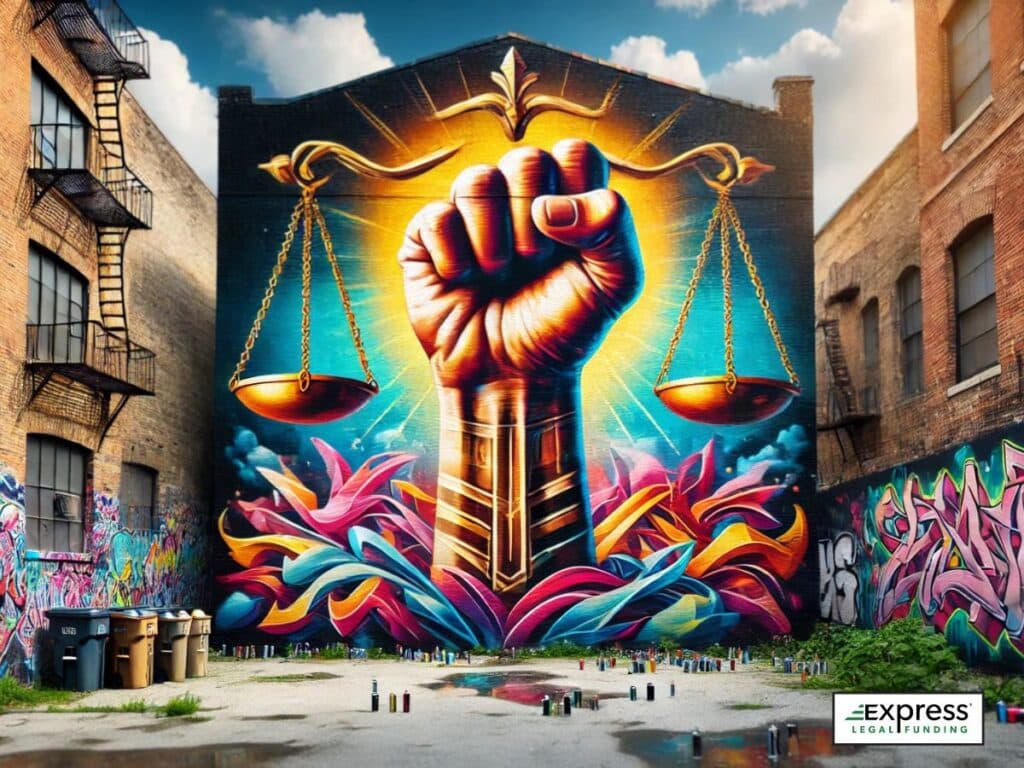
Who really pays for the costs of police misconduct, such as wrongful arrests or excessive force?
🚔⚖️ Police misconduct lawsuits frequently lead to multi-million-dollar settlements, with taxpayers ultimately footing the bill. These large payouts drain public funds, diverting money away from essential services like education, infrastructure, and mental health programs.
But the impact goes beyond finances. The many tipos de mala conducta policial erode public trust, deepening tensions between law enforcement and the communities they serve.
The long-term consequences can lead to weakened community relations, reduced cooperation with police, and systemic social challenges.
In this article, our editorial team breaks down the full economic and social impact of police misconduct settlements and explores potential reforms to reduce these costs.
What Are the Costs of Police Misconduct?
Police misconduct costs taxpayers millions annually through settlements, court judgments, and increased insurance premiums, leading to financial burdens on city budgets and diverting public funds to legal payouts instead of essential services.
How Much Do Police Misconduct Settlements Cost Taxpayers?
Police misconduct settlements cost U.S. cities over $300 million annually, with taxpayers funding the payouts.
A 2022 Washington Post investigation found that the 25 largest police departments in the U.S. spent over $3.2 billion on settlements in the past decade, with $1.5 billion paid in cases involving officers with repeated misconduct allegations. Excessive force and false arrest accounted for the highest settlement totals, at $71.9 million and $51.1 million, respectively.
These legal payouts divert funds from education, healthcare, and infrastructure, creating financial strain on local governments and taxpayers.
Financial Costs of Police Misconduct
Police misconduct carries significant financial costs, impacting taxpayers, victims, and entire communities.

Many high-profile police brutality lawsuits in recent years have shed light on the financial implications of police misconduct. Settlements from these lawsuits have imposed substantial economic tolls on municipalities across the United States.
For instance, as per WTTW analysis, Chicago taxpayers spent at least $107.5 million to resolve police misconduct lawsuits in 2024. For the NYPD, that total was over $205 million in 2024, making it one of the highest-ever payouts in recent years.
Taxpayer Burden: How Police Misconduct Lawsuit Settlements Impact Public Finances
The financial strain of these settlements often falls on taxpayers, as municipal budgets are used to cover the costs. This can lead to a reallocation of funds from essential public services, affecting community resources and infrastructure.

The Hidden Cost of Police Misconduct: Lost Opportunities from High Settlement Payouts
These payouts come from:
- General Funds: Most settlements come directly from city budgets, meaning money that could be used for schools, infrastructure, and emergency services is instead spent on misconduct claims.
- Public Safety and Infrastructure: New York City’s annual police settlement payouts frequently exceed $100 million, diverting funds from infrastructure improvements and community programs.
- Bond Programs and Long-Term Debt: Some cities issue bonds to cover settlement costs, effectively increasing future debt obligations. For instance, Chicago issued $225 million in bonds in 2017 to pay for police misconduct claims, leading to millions more in interest payments borne by taxpayers.
- Education: In some cities, misconduct settlements equate to annual education budgets. For example, Chicago paid $500 million in police-related settlements between 2004 and 2018—comparable to its annual school budget.

The financial consequences of police misconduct aren’t just numbers on a budget sheet. They represent real missed opportunities for public investment. Instead of funding schools, mental health services, and infrastructure, cities are forced to allocate taxpayer dollars toward legal payouts.
To put these costs into perspective, let’s examine real-world examples of how much municipalities are paying—and what those funds could have achieved instead:
Real-World Examples: How Police Misconduct Lawsuit Settlements Drain Community Resources
- New York City paid $121 million in police misconduct settlements in 2022—enough to fund the salaries of 1,200 new teachers o repair 80 miles of roads.
- Chicago spends an average of $85 million annually on police misconduct claims, which could instead support 800 new mental health professionals to serve the community.
Every dollar spent on police misconduct settlements is a dollar taken away from essential public services—deepening the financial strain on communities.
Instead of investing in schools, healthcare, and infrastructure, cities are forced to allocate taxpayer funds to legal payouts, underscoring the urgent need for stronger police accountability reforms.

The Roles of Insurance and Liability for Police Misconduct
Insurance plays a crucial role in managing the financial liabilities associated with police misconduct. Many municipalities rely on insurance policies to cover settlement costs, which can mitigate the immediate financial impact on public finances.
However, the rising frequency and magnitude of settlements have led to increased insurance premiums and, in some cases, the withdrawal of coverage by insurance companies.
This situation underscores the importance of implementing effective risk management strategies and reforms to address the root causes of misconduct.
Some key insights into this dynamic include:
- Rising Premiums: Cities with frequent misconduct claims, such as Baltimore and Cleveland, have seen their insurance premiums increase by over 30% in the past decade.
- Denial of Coverage: Insurers have begun to deny coverage to municipalities with excessive misconduct claims. In New York, some insurers have threatened to drop coverage unless reforms are implemented.
- Self-Insurance Models: Larger cities like Los Angeles and Chicago self-insure, meaning taxpayers directly cover settlement costs instead of relying on external insurers. This model can provide short-term relief but may ultimately strain municipal budgets.
📂 Curious whether you can access someone else’s or a government entity’s insurance policy details? Learn about legal access and privacy laws in our guide: Are Insurance Policies Public Record?
Types of Compensation for Victims of Police Misconduct

Compensation for victims of police misconduct is determined by several factors, including the severity of the misconduct, the extent of physical and emotional harm suffered, and the impact on the victim’s life. The compensation typically covers:
- Economic damages: Medical bills, lost wages, legal fees.
- Non-economic damages: Pain, suffering, emotional distress.
- Punitive damages: Financial penalties meant to deter future misconduct.
Muerte por negligencia cases often result in higher payouts than excessive force or wrongful arrest cases.
Courts also consider medical expenses, lost wages, and punitive daños. For instance, in cases involving excessive force, compensation may be higher due to the physical injuries sustained by the victim. The aim is to provide a financial remedy that reflects the damages incurred and to deter future misconduct.
⚠️ Important Fact: Victims of police misconduct must file their demanda before critical deadlines expire, or they will lose their right to sue. Read our guide: Prescripción de las demandas por mala conducta policial
Real-World Examples of Police Misconduct Lawsuit Settlement Amounts
Some prominent police misconduct cases in the last decade include:
- George Floyd (Minneapolis, 2021): The city agreed to a $27 million settlement with Floyd’s family, marking one of the largest pre-trial settlements for police misconduct in U.S. history.
- Breonna Taylor (Louisville, 2020): Taylor’s family received $12 millones, alongside commitments to police reforms.
- Eric Garner (New York City, 2014): The city settled for $5.9 million following Garner’s death due to a prohibited chokehold applied by an NYPD officer.
- Laquan McDonald (Chicago, 2015): The City of Chicago paid $5 millones to McDonald’s family without a lawsuit being filed following the release of video footage showing a police officer shooting the 17-year-old 16 times.
These settlements are not anomalies. From 2010 to 2020, New York City alone spent more than $1.1 billion defending against and settling police misconduct legal claims, demonstrating the immense financial implications for taxpayers.
Legal Support: Role of Police Misconduct Lawyers

Victims of police misconduct often depend on skilled civil rights attorneys to pursue justice and secure fair compensation. These profesionales del derecho help clients navigate complex claims, gather critical pruebas, negotiate settlements, and advocate in court.
Many civil rights violations by law enforcement result in wrongful arrest settlements and demanda colectiva lawsuits against police departments. However, qualified immunity remains a major legal hurdle, often shielding officers from accountability and influencing case outcomes.
⚖️ Read our guide to understand how qualified immunity protects law enforcement from lawsuits and why it remains one of the biggest legal challenges: 8 grandes retos para demostrar la mala conducta policial en los juicios
Social Consequences of Police Misconduct
The widespread outrage following high-profile cases has led to significant social and political movements demanding greater police accountability and systemic change. Activist groups, legislative bodies, and independent oversight committees have all played roles in reshaping policing policies.
Beyond financial costs, police misconduct erodes public trust and can lead to long-term social consequences:
- Reduced Public Cooperation: Communities with high-profile misconduct cases often see a decline in trust, making policing less effective.
- Increased Crime Rates: Some studies suggest that after major misconduct cases, police pull back on proactive enforcement, leading to crime spikes.
- Protests & Policy Changes: Public outrage over cases like George Floyd, Breonna Taylor, and Tamir Rice has led to calls for reform, including body cameras, independent oversight, and changes to qualified immunity.
- Economic Decline: Property values in neighborhoods affected by police misconduct tend to drop, reducing tax revenue for cities. In Ferguson, Missouri, home values fell by more than $10 million following the 2014 Michael Brown case.
Reduced Community Trust

- Impact on Public Trust: Police misconduct significantly erodes public trust in law enforcement. Communities may become wary of police presence, leading to strained relations and reduced cooperation in crime prevention efforts.
- Police-Community Relations: The breakdown in trust can result in increased tensions and conflicts between police and community members, making it challenging to maintain public safety and order.
Long-term Effects
- Societal Changes: High-profile cases of police misconduct often serve as catalysts for societal change, prompting public outcry and demands for justice.
- Reforms Prompted by Misconduct: These incidents can lead to significant reforms in policing practices, such as the implementation of body cameras, changes in use-of-force policies, and enhanced training programs focused on de-escalation and cultural sensitivity.
Examples: Analysis of Communities Affected by High-Profile Cases
- Minneapolis: Following George Floyd’s death, the city proposed dismantling its police department, although the measure ultimately failed.
- Ferguson: After the 2014 killing of Michael Brown, the Department of Justice investigated the city’s police practices, resulting in mandated reforms.
- Baltimore: The 2015 death of Freddie Gray led to a federal consent decree requiring sweeping changes in police training and oversight.
These cases illustrate how police misconduct can drive lasting societal and institutional changes.
👮♂️🚨 Have you experienced police misconduct and don’t know what steps to take? Lea nuestra guía: ¿Cómo denunciar una conducta policial indebida? Conozca sus opciones legales
Police Misconduct Policy Changes and Reform
In response to public demand for accountability, several states have enacted laws aimed at addressing police misconduct. These include measures to limit qualified immunity, mandate independent investigations of police shootings, and require public disclosure of police disciplinary records.
What Can Be Done to Reduce The Costs of Police Misconduct?

Many cities are implementing reforms to reduce police misconduct settlements and their impact on taxpayers. These reforms include:
- Better Officer Training: De-escalation tactics and bias training can prevent misconduct before it occurs.
- Juntas civiles de supervisión: Independent review boards can increase accountability and recommend policy changes.
- Ending Qualified Immunity: Some states have passed laws limiting qualified immunity, making it easier to hold officers financially responsible.
- Mandatory Liability Insurance: A controversial proposal suggests requiring officers to carry personal liability insurance, shifting the financial burden away from taxpayers.
Legislative Changes: Recent Laws and Policies Addressing Police Officer Misconduct
In response to growing concerns over police misconduct, lawmakers have enacted various reforms, including:
- Cámaras corporales: Mandating the use of body cameras to increase transparency.
- Qualified Immunity Reform: Efforts at state and federal levels to limit protections for officers accused of misconduct.
- Independent Investigations: Establishing independent oversight bodies to handle misconduct cases instead of relying on internal police reviews.
Community Initiatives
- Grassroots Efforts: Community organizations and advocacy groups play a crucial role in promoting accountability and transparency. Initiatives such as civilian oversight boards and community policing programs aim to bridge the gap between law enforcement and the communities they serve.
- Public Engagement: Engaging the public in discussions about policing practices and reforms is essential for building trust and fostering collaboration between police and community members.

Future Directions
- Potential Reforms: Future reforms may focus on enhancing police accountability through technology, such as using artificial intelligence to monitor police behavior and predict potential misconduct.
- Implicaciones: These reforms have the potential to transform policing practices, improve community relations, and ensure justice for victims of misconduct. However, they also require careful consideration of privacy concerns and the need for comprehensive training and oversight.
Pre-Settlement Legal Funding for Victims of Police Misconduct
Seeking justice after experiencing police misconduct can be a long and financially draining process. Victims often face mounting legal fees, lost wages, and medical expenses, all while waiting for a potential settlement. This financial strain can make it difficult to pursue justice and hold law enforcement accountable.
💰 Need financial support while waiting for your lawsuit settlement? Learn how a Anticipo de efectivo can provide fast, risk-free legal funding to help cover essential expenses.

En Express Legal Funding, we provide financiación previa a la liquidación to help victims cover essential living expenses while their cases proceed. Unlike a lawsuit loan, our tipo de financiación jurídica is non-recourse, meaning you only repay if you settle or win your case.
Our goal is to empower victims with financial stability so they don’t feel pressured to accept lowball settlement offers due to financial hardship.
How Pre-Settlement Funding Helps Victims of Law Enforcement Misconduct:
- Covers Urgent Expenses: Receive funds to help with rent, medical bills, and daily costs.
- No Risk, No Upfront Fees: If you don’t win your case, you owe us nothing.
- Fast and Accessible: Approvals are quick, so you can get the money you need without delay.
While taxpayers bear the financial cost of police misconduct settlements, victims often suffer the greatest personal financial strain—losing wages, facing mounting medical bills, and struggling with legal costs while waiting for justice.
Express Legal Funding empowers victims to pursue justice without financial strain, ensuring they can stand their ground against injustice rather than accepting lowball settlements out of necessity.

📞 Apply for risk-free pre-settlement funding from Express Legal Funding today and get the financial support you need to stand your legal ground.
Conclusion: Examining the Economic and Social Impact Caused by Police Misconduct
The financial and social impact of police misconduct extends far beyond legal settlements. Taxpayers bear the cost, communities suffer, and victims face an uphill battle for justice. Addressing this crisis requires policy reforms, increased accountability, and financial support for victims.
At Express Legal Funding, we empower individuals to pursue justice without financial distress. By combining financial solutions with meaningful reform, communities can work toward a future where police accountability is prioritized and taxpayer dollars are invested in progress, not payouts.



